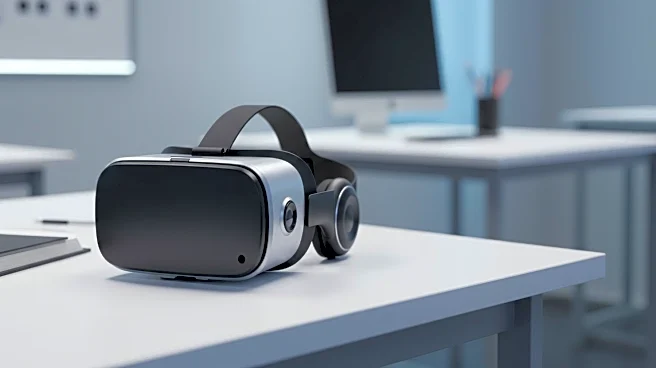What's Happening?
Avantis Education has launched two new headsets, Xcelerate and Xplorer, as part of its ClassVR solution aimed at enhancing educational experiences through virtual and augmented reality. The Xcelerate headset is specifically designed for higher education environments, featuring advanced tracking capabilities and a flip visor for seamless transitions between virtual and real-world interactions. The Xplorer headset caters to K-12 education, offering improved VR/AR experiences with a 4K Ultra-HD display and enhanced audio. Both headsets are powered by Snapdragon XR Platforms, developed in collaboration with Qualcomm Technologies, Inc., to deliver richer immersive content.
Why It's Important?
The introduction of these headsets represents a significant advancement in educational technology, potentially transforming how students engage with learning materials. By integrating sophisticated VR/AR capabilities, Avantis Education aims to provide more interactive and engaging learning experiences, which could lead to improved educational outcomes. The collaboration with Qualcomm ensures that the technology is cutting-edge, offering schools and universities tools to better prepare students for a tech-driven future. This development may influence other educational institutions to adopt similar technologies, thereby broadening the scope of immersive learning.
What's Next?
As these headsets become available, educational institutions may begin integrating them into their curricula, potentially leading to widespread adoption of VR/AR technologies in classrooms. Avantis Education and Qualcomm may continue to innovate and expand their offerings, possibly introducing more advanced features or additional educational applications. Schools and universities will likely assess the impact of these technologies on student engagement and learning outcomes, which could drive further investment in immersive educational tools.
Beyond the Headlines
The rollout of these headsets could spark discussions on the ethical implications of VR/AR in education, such as data privacy and the digital divide. Ensuring equitable access to such technologies will be crucial to avoid exacerbating existing educational inequalities. Additionally, the long-term effects of VR/AR on cognitive development and social interactions among students may become a focus of research and policy considerations.









